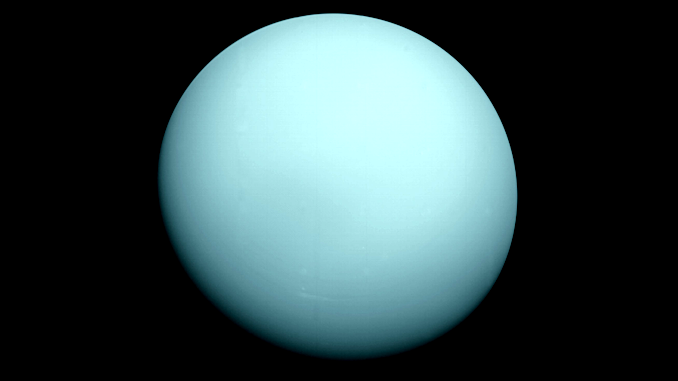
The recent acknowledgement of Goblin as a distant dwarf planet drew a lot of attention to the fact that celestial bodies were typically named after Greek and Roman mythology.
There’s a planet that bucks that trend, though… Uranus. When William Herschel discovered Uranus and its first two recognized moons, he gave the satellites the grand names of… “number one” and “number two.”
A few years later, a fellow British astronomer discovered two more of the moons. At the urging of William Herschel’s son John, also an astronomer, the original four moons were given names after Shakespeare and Alexander Pope characters, fairies and spirits of the air: Titania and Oberon (A Midsummer Night’s Dream) and Umbriel and Ariel (The Rape of the Lock).
At first, Shakespeare and Pope were tied at two apiece… and that didn’t last long. Almost every subsequent moon found orbiting Uranus (and at last count there are 27) has been named after a character from Shakespeare. Pope only got one more nod, with Belinda – also from The Rape of the Lock.
Shakespeare’s list, however, is impressive: Cordelia (King Lear); Ophelia (Hamlet); Bianca (The Taming of the Shrew); Cressida (Troilus and Cressida); Desdemona (Othello); Juliet (Romeo and Juliet); Portia (The Merchant of Venice); Rosalind (As You Like It); Puck (A Midsummer Night’s Dream); Miranda (The Tempest); Prospero (The Tempest); Caliban (The Tempest); Sycorax (The Tempest); Setebos (The Tempest); Stephano (The Tempest); Trinculo (The Tempest); Francisco (The Tempest); Ferdinand (The Tempest); Mab (Romeo and Juliet); Cupid (Timon of Athens); Perdita (The Winter’s Tale); and Margaret (Much Ado About Nothing).
Perhaps this recognition is, also, much ado about nothing. But it’s one more feather in the cap for Shakespeare.
Question of the night: What’s your favorite play?
